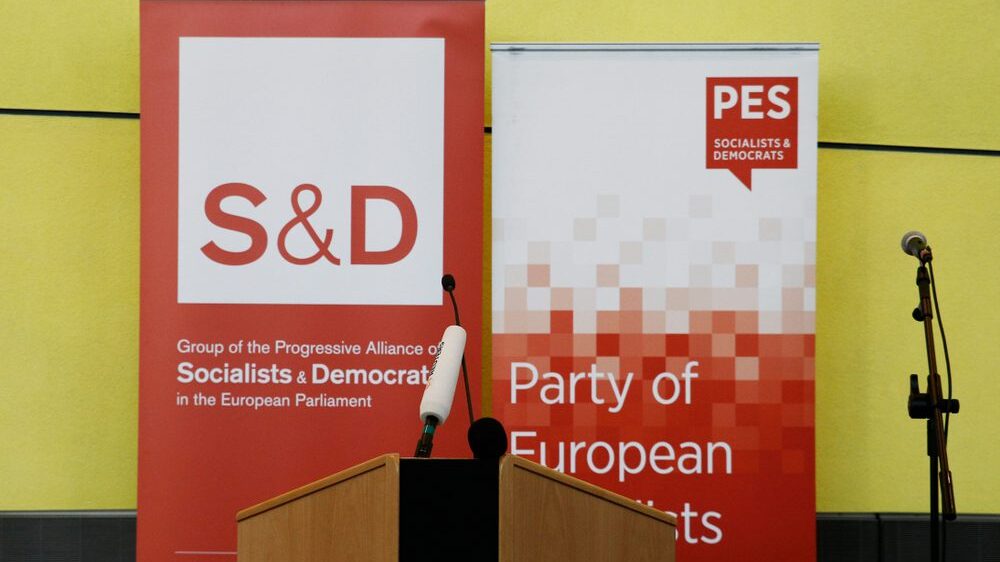
Photo: Alexandros Michailidis / Shutterstock.com
The leader of the European Parliament’s left-leaning S&D group has stated that future collaboration with the centrist EPP may be jeopardised after overtures by the EPP to more right-wing parties.
Iratxe García Pérez made the comments in an interview last week. Cooperation between the S&D and EPP is currently the cornerstone of the EU’s legislative process. A rupture between the two groups would represent a serious blow to the European political status quo and potentially cripple this legislative process.
García Pérez described how recent EPP approaches to nationalist and Eurosceptic parties constituted a “red-line” moment for the S&D and contravened the progressive principles of the parliamentary bloc which represents centre-left parties from across the EU.
The Spanish socialist MEP confirmed that cooperation between her and the EPP would be unlikely after the 2024 elections due to these flirtations with what she described as the “extreme right” by the EPP. The rise of national populism has led to a breakdown in the traditional cordon sanitaire against what was once regarded as the radical Right in Europe. The EPP is now allegedly adjusting to the new political norm.
“If the traditional pro-European alliance is in danger, it is because some people are moving in a very dangerous direction.”
— Iratxe Garcia Perez /❤️ (@IratxeGarper) May 8, 2023
My interview with @EurActivPoland
Now available: https://t.co/M4NIkoIeS7
The EPP is the largest faction within the European Parliament and includes the German Christian Democrats and the ruling Greek New Democracy. Many on the Right have criticised the group for failing to stand up to one-sided Green and migration-related EU legislation. The EPP has courted controversy from the mainstream press before for its attempt to woo more right-wing groupings such as Meloni’s Fratelli party.
The EPP is responding to an expected shift in the political calculus after next year’s European elections after growing evidence of a north-south divide over the issue of embracing populists within their ranks. Regardless, the EPP was quick to quash rumours of an alliance with Salvini’s Lega party. German MEPs in the EPP are known to be opposed to any shift toward the Right.
There has been speculation in Brussels of a potential defection by the Fratelli delegation currently affiliated with the conservative ECR group to EPP, largely based on warm relations between EPP leader Manfred Weber and Italian Prime Minister Giorgia Meloni.
The ideological direction of the EPP figured prominently in a dispute over the EU’s controversial Asylum Pact with conservatives pondering the viability of the faction if it fails to stand up to the Left.

Source: EU Election Projection 2024 – Europe Elects
The EPP has long been eyeing the ECR as a potential partner to replace the scandal-ridden S&D. Recent polling suggests that the ECR group could become the third-largest faction in parliament after 2024 with 85 seats. The fact that even the ECR is being referred to as “far right” by a S&D leader indicates how easily the ideological goalposts can be moved by the Left.
Whether this is a sign that national populists are coming of age or just a perfunctory rearrangement in European politics, one thing is for certain: the weakening centre in Brussels will contribute to a more partisan landscape after 2024.
